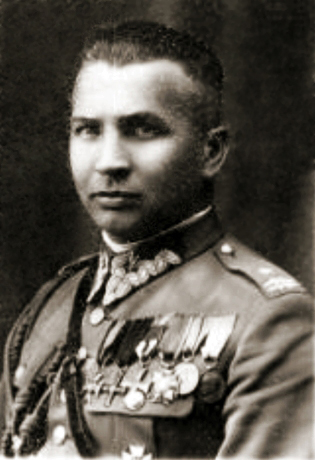Exactly 78 years ago, on 19 January 1945, Home Army Commander-in-Chief Brigadier General Leopold Okulicki a.k.a. “Niedźwiadek” took the decision to disband the underground army. In this way, he wanted to prevent the Home Army from being discredited by communist propaganda, and to reduce the scale of repression suffered by underground soldiers from the communists.
In January 1945, the Red Army’s offensive began, and it momentarily occupied the entire territory of Poland. Home Army soldiers found themselves in a dramatic situation. Exhausted by five years of occupation, fighting the Germans in the Warsaw Uprising and as part of Operation Tempest, they faced a second enemy, this time the Soviets. As a result of the situation, General Okulicki, wanting to protect his rank-and-file soldiers, formally disbanded the Home Army, issuing his last order: “Carry out your further work and activities in the spirit of regaining the full independence of the State and protecting the Polish population from annihilation. Strive to be the guides of the Nation and the realisers of an independent Polish State”. At the same time, he issued instructions to his subordinate commanders to keep cadres out of the underground and to maintain contact with representatives of the Polish Government in London.
In February 1945, the anti-German coalition conference was held in Yalta, during which Soviet domination of eastern Europe was accepted. Soon General Okulicki was arrested and sentenced on 21 June 1945 to ten years’ imprisonment in a show trial of sixteen leaders of the Polish Underground State in Moscow. He defended the good name of the Home Army to the very end.
He died on Christmas Eve 1946 in an NKVD prison in Lubianka, Moscow. Two comrades in misery, Adam Bień and Antoni Pajdak also accused in the trial, testified that General Okulicki was murdered.
At the request of the General Prosecutor in Warsaw, on 19 April 1990, General Okulicki was rehabilitated by a decision of the Plenum of the Supreme Court of the USSR.





